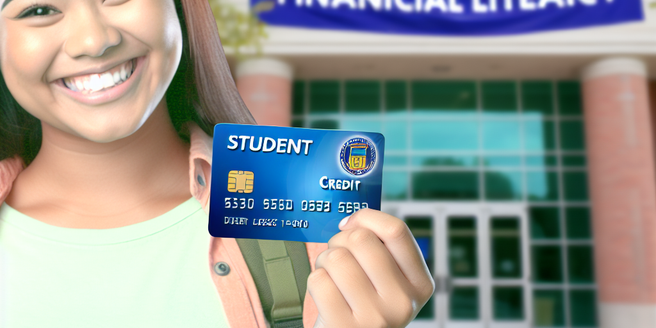
Understanding the Basics of Credit Cards
Credit cards are powerful financial tools that require careful handling. By understanding key terms like interest rates, annual fees, and credit limits, students can use them wisely. It’s crucial to approach credit card use with responsibility and awareness. Most importantly, they should be aware of their spending habits to prevent overspending. Paying off the entire balance monthly avoids interest, while consistent, small purchases and timely payments build credit scores. Familiarity with statements, due dates, and billing cycles helps avoid late fees. By emphasizing education on card terms and conditions, students can leverage credit cards for financial growth and convenience without falling into debt.
Choosing the Right Card for Students
Selecting a student credit card involves assessing various factors. Look for cards offering low or no annual fees, competitive interest rates, and special incentives tailored for students. It’s also important to understand the terms and conditions associated with each card before making a decision. Compare options offering cashback on categories like dining or textbooks. Some cards come with introductory offers, such as zero APR for the first year. Evaluating the card’s benefits against potential limitations helps make an informed choice. Consider cards that report to the major credit bureaus, ensuring they support credit-building activities. Finally, check for security features like fraud detection to protect finances.
Managing Credit Limits and Spending
Effective management of credit limits and spending is crucial for financial health. Keep card utilization low, ideally below 30% of the credit limit, which positively impacts credit scores. Monitor spending through mobile apps or account alerts to prevent overspending. Regularly evaluating credit card offers can also reveal opportunities for better terms or rewards. Create a budget to track purchases, ensuring expenses don’t exceed available funds. Regularly review statements to understand spending patterns and identify areas for savings. Setting alarms for due dates helps prevent late fees. Responsible limit management encourages discipline, preventing uncontrolled debt and building a stable financial future.
Leveraging Student-Friendly Features
Student credit cards often come with features designed to support young adults. Look for perks such as cashback on essential purchases, no foreign transaction fees, and rewards for academic performance. When selecting a card, it’s important to compare different offers to find the one that best meets individual needs. Some cards offer tools like budgeting apps or credit score monitoring to help develop strong financial habits. Many issuers provide leniency with payment deadlines or temporary lower interest rates, making it easier to manage financial hiccups. By taking advantage of these features, students can enhance their purchasing power and gain valuable insights into financial management while studying.
Building a Strong Credit History Responsibly
Building a solid credit history is vitally important for students. Start by making small, manageable purchases and paying off the balance in full each month to show responsible credit use. Set up automatic payments to avoid missed deadlines. Experimenting with a secured credit card can be a great way to get started. Keep old accounts open, as long credit history positively impacts scores. Regular checks of credit reports help identify any inaccuracies or early signs of identity theft. Consistent, responsible credit card use establishes a good credit foundation, aiding future loan approvals for cars, homes, or other financial ventures.
Utilizing Rewards and Cashback Offers
Student credit cards often include rewards programs and cashback offers, which can be leveraged for savings. These incentives can significantly enhance the value of your credit card. Choose cards that align rewards with spending habits, such as cashback on groceries or gas. Be aware of any requirements or limits on earning rewards. Use earned points strategically, for example, to offset travel costs or purchase academic materials. However, avoid overspending to earn rewards, which could result in interest charges. Regularly review rewards programs to ensure you’re maximizing benefits. Thoughtful use of rewards enhances card value and contributes to financial savvy.
